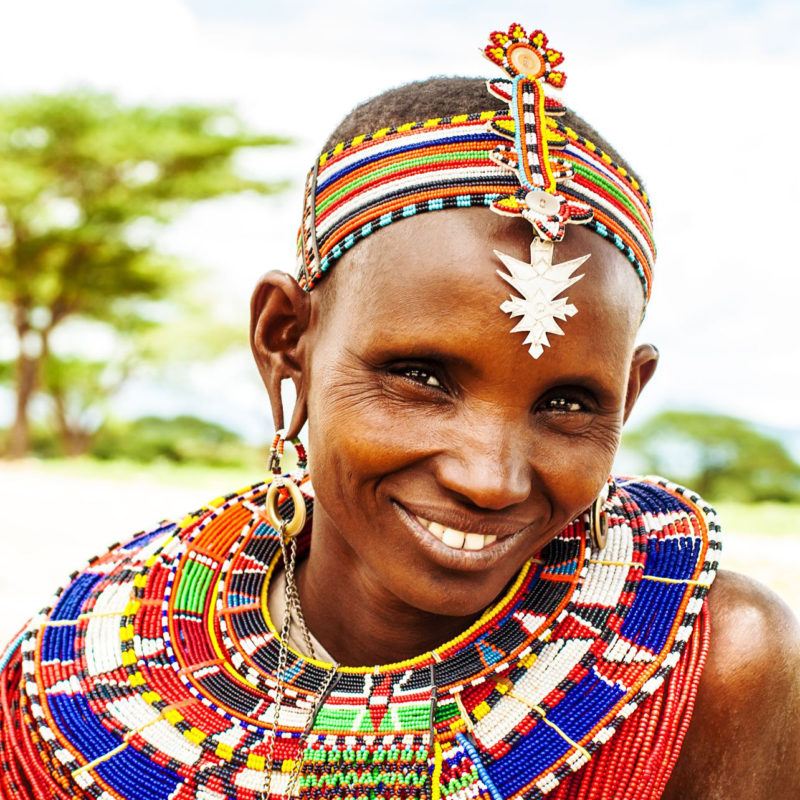Last year, while in South Africa, we spent about twenty days with a remarkable Zulu Songoma, Credo Mutwa. This was over a four-month period, and we would stay for three or four days at a time. My wife was shooting a documentary to be released in 2008, and we gathered over forty hours of footage for this show.
We have visited Credo Mutwa each year since 1993, and over that time a friendship has developed. We felt honoured when he invited us to record some of his teachings, for he has no successor, and when he dies many of his stories and teachings will leave with him. He is not the only teacher of Ubuntu, but he is perhaps the most knowledgeable and most eloquent. When he passes, and at eighty-six, that will be sooner rather than later, it will be as if a great library has burned to the ground.
 It is Credo’s wish that Ubuntu will spread throughout the world to ail a suffering humanity that has lost touch with its basic humanness.
It is Credo’s wish that Ubuntu will spread throughout the world to ail a suffering humanity that has lost touch with its basic humanness.
“Africa’s wisdom must be shared with the world now. Africa has so much to offer the world…but alas, people only focus on negativity and problems.” – Credo Mutwa
Africa does indeed have so much to offer. And for too long, it has been ignored and trivialized.
Long before the eras of the Greek and Roman empires, Africa thrived and was the foundation for and creative genius behind such divergent subjects as mathematics, astronomy, medicine, philosophy, architecture and engineering, to name but a few. Let us not forget that the pyramids of Egypt, built thousands of years ago, are still, to this day, a pinnacle of human engineering. Even today they could not be built with greater accuracy and precision.
Western civilization is built on the wisdom and knowledge of the African continent. Egypt had the first universities and the first libraries. The history books written by Europeans forget this aspect, but the truth of man’s evolution culturally and intellectually is open to anyone to pursue, and once pursued, it leads clearly to Africa, with the height of its achievement being Ancient Egypt. However it was not just the Egypt we know from history books, but Ethiopia as well, which in ancient times stretched across most of Africa, as far south as South Africa and west to the Atlantic Ocean. This great nation has not been given its due respect.
What Does Ubuntu Mean?
Ubuntu is a term derived from the word “muntu,” meaning a person – a human being.
Ubuntu is not easy to describe. It is both a philosophy and a way of action. It is a distinctive African cosmological system of teaching each individual to appreciate and enjoy their life while caring, sharing and respecting others. Ubuntu belongs to no one tribe or no one religion or teaching. It transcends all attempts to restrict it and place it in a category.
According to ancient African traditional wisdom, each individual possesses positive, loving qualities. These qualities represent our natural internal state of being. When we express them, we are being genuine, authentic human beings. To be otherwise is to be out of harmony. And to be out of harmony brings unhappiness to ourselves, others, and our world.
Ubuntu is simply a way of living and being that allows our basic goodness to come forth. It is the art of being a human being. It is the living of our humanness. It is the unfolding of our natural goodness. Each living human being has this opportunity to discover their basic goodness and to practice it. “Umuntu ngumuntu ngabantu.” I am because you are. It is through you that I am a human being.
Ubuntu values the dignity, safety and welfare of the individual over all other considerations. It is a holistic perspective which requires that society be managed for the good of all and not just for the few.
A Xhosa proverb states, “Ubuntu ungamuntu ngabanye abantu.” People are people through other people. In other words, we need each other to be fully human and alive. It is in our interaction with others that our humanness flourishes. Our humanness at its core is good and positive, and through discovering this in ourselves we act in a way that reflects these truths.
Nelson Mandela is the embodiment of Ubuntu. He has spoken of it often, though the term, not familiar to western ears, has gone unnoticed.
He dedicated himself to the cause of his people and never stopped struggling to free the South African blacks from Apartheid. In 1993, after serving twenty-seven years in prison, he was released, and within a year was the first black President of South Africa.
There was no bitterness or resentment from his years in prison, only wisdom, patience and compassion. No other leader could have unified the new country. He is an iconic figure and will be remembered, respected and admired not only by us and our children, but by our children’s children. Such is his legacy.
It would not surprise me that through the example of Nelson Mandela and the teachings of Credo Mutwa that Ubuntu is finally discovered by the rest of the world.
 Ubuntu Principles
Ubuntu Principles
A human being from an Ubuntu perspective should be kind, generous, friendly, living in harmony with himself, the environment and others, and at one with the creator.
“This is what Africa can teach the world. We have forgotten how to be human beings, and we must remember quickly if we are to save the world. Life is an instrument and we have lost the ability to play it. People live but they are not alive. We must use life and play it like an instrument and make beautiful music.” – Credo Mutwa
Here are four Ubuntu principles to live by:
1. Caring
Caring is embracing others. Their needs become your needs. Their joys and sorrows become your joys and sorrows. It is the practice of concern and oneness, which Jesus expressed as “Love thy neighbor as thyself.” It is putting the problems, interests and circumstances of others at a higher level of attention. For as Ubuntu teaches, “we are human through our interaction with others. Without others we are not human.” From this perspective we should welcome our interaction with others regardless of whether they are pleasant or not, for all interactions allow us to express our humanness.
2. Empathy
Empathy is the ability to successfully enter into the emotional situation of another, to listen and feel genuine sympathy because you hear and feel what others share with you. You listen with your mind but you also feel with your body, and this feeling allows you to “see” the situation from a deeper perspective. When we cultivate the practice of empathy it deepens us and gives us access to more humanness with which we can help others.
3. Sharing
In the Ubuntu culture, it is normal to share generously with others. “Mahala” is the traditional African practice that teaches that it is proper to give to others without expecting anything in return. Not everything needs to be done for money or gain. You work to support your family and if you prosper you share with others. Even if you don’t prosper you must share because there is always someone else worse off than you. By sharing you express your humanness and find joy within because you awaken your heart. Heartless people have no joy, though they might have riches. People with heart have joy because they have discovered their humanness. To discover your humanness is to discover something great, a treasure unlike any other. Each day of our life gives us opportunity to discover and practice our humanness.
4. Respect
Respect covers many things. Respect for elders, children and all members of your community, respect for your ancestors, traditions, the ancient teachings and practices. Respect for oneself, for if one does not respect oneself how can one respect another? Respect for your environment and all living creatures. Respect for the Ubuntu way of life as a way to happiness and self-awareness.
All in all, the values of Ubuntu manifest in good deeds, things like being sensitive to the needs of others, being compassionate, forgiving, caring and generous. As these values are the basic foundation of each individual, they can guide us in how our life should be lived. They allow us to measure our actions in day-to-day life against our ideals.
Do we practice Ubuntu and as a result live in harmony with ourselves and others, or are we living busy lives, deluded, self-centered, interested in only our own welfare, unable to practice love and compassion because we have lost our way? Ubuntu forces us to look at our actions to see if they match our values, for Ubuntu is measured in actions not good intentions.
